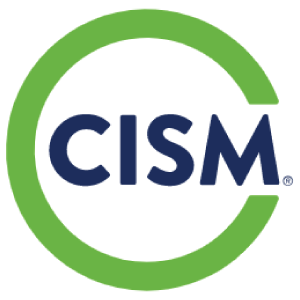
The Certified Information Security Manager (CISM) certification, offered by ISACA, is a globally recognized credential designed for information security professionals who manage, design, oversee, and assess an enterprise’s information security program.
The CISM certification validates an individual’s expertise in information security governance, risk management, program development and management, and incident management. It demonstrates the ability to align information security initiatives with organizational goals and objectives, manage information security risks effectively, and establish and maintain a robust information security program.
Duration: 4 Days
$1,995.00
The CISM certification is ideal for experienced information security managers, IT managers, security consultants, and other professionals responsible for managing and overseeing information security within their organizations.
These domains and their associated objectives provide a comprehensive framework for managing information security within an organization and preparing for the CISM certification exam. Candidates are expected to demonstrate proficiency in each domain to successfully pass the exam and earn the CISM certification.
To earn the CISM certification, candidates must pass a single exam covering four domains:
The Certified Information Security Manager (CISM) certification, offered by ISACA, is a globally recognized credential designed for information security professionals who manage, design, oversee, and assess an enterprise’s information security program.
The CISM certification validates an individual’s expertise in information security governance, risk management, program development and management, and incident management. It demonstrates the ability to align information security initiatives with organizational goals and objectives, manage information security risks effectively, and establish and maintain a robust information security program.
The CISM certification is ideal for experienced information security managers, IT managers, security consultants, and other professionals responsible for managing and overseeing information security within their organizations.
These domains and their associated objectives provide a comprehensive framework for managing information security within an organization and preparing for the CISM certification exam. Candidates are expected to demonstrate proficiency in each domain to successfully pass the exam and earn the CISM certification.
To earn the CISM certification, candidates must pass a single exam covering four domains:
4 days
$1,995.00
In just 7 days, you’ll discover your potential, elevate your confidence, and determine if you’re truly prepared to achieve certification, advancement, and reward—through an engaging self-assessment challenge crafted specifically for ambitious IT professionals.

@ Copyright SteppingStone Solutions, Inc. 2024-2025 All Rights Reserved